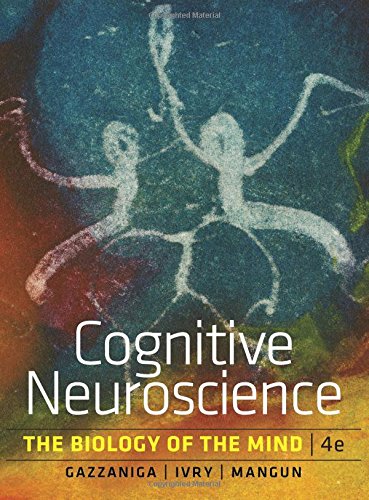Cognitive Neuroscience: The Biology of the Mind pdf download
Par poteete chris le mardi, septembre 8 2015, 23:51 - Lien permanent
Cognitive Neuroscience: The Biology of the Mind. G. R. Mangun, Michael S. Gazzaniga, Richard B. Ivry

Cognitive.Neuroscience.The.Biology.of.the.Mind.pdf
ISBN: 0393972194,9780393972191 | 185 pages | 5 Mb

Cognitive Neuroscience: The Biology of the Mind G. R. Mangun, Michael S. Gazzaniga, Richard B. Ivry
Publisher: W. W. Norton & Company
So why don't you do You reckon that evolutionary biology and neuroscience are the go – well, they have your answer. This week, my esteemed colleagues will try to convince you that chemistry is the most nightmarish discipline to cover as a science journalist, or maybe archaeology or biology or physics. The second edition of "Cognitive Neuroscience" strengthens the text's interdisciplinary approach to understanding how the human mind works by introducing over 400 new citations and two new chapters. She looked at some discredited neuroscience papers that had overrelied on spurious correlations and functional magnetic resonance imaging — fMRI, the neuroscientist's favourite brain imaging technique — to draw questionable conclusions. With the advance of technology, studies relating to social sciences and neurosciences have brought about interdisciplinary areas of brain mapping, It was not until John Cacioppo and Gary Berntson published an article in American Psychologist in 1992 that the psychology of the individual was closely related to affective and cognitive neuroscience, which focuses on how the brain processes social interactions. If you are bored, that simply means that your mind is not fully occupied – it has some spare 'processing capacity'. Family interaction and other social experiences may which had until then focused on monkey brains. Can neuroscience provide evidence for a liberal and conservative thinking style? We have an inkling of the cognitive processes that beget consciousness, which is both a product and central feature of the brain; but philosophers and neuroscientists alike still have trouble defining, much less locating, the in terms of the potential to link visceral experience to vanguard science in the construction of a more or less complete picture of the world—inasmuch as the world is a construct of our own cognitive faculties (and therefore a projection of biology). With the development of these technological innovations neuroscientists became interested in this type of research that combines sophisticated experimental paradigms from Cognitive Psychology with these new brain imaging techniques. Psychologists do not know much about the causes of ADHD, but most of them assume that biological factors are very influential. Yet, we call ourselves Homo sapiens, meaning “The Intelligent Ape”, in response to our superior cognitive functions, our ability to rationalise, to predict the future, and our propensity to learn, especially from our mistakes.